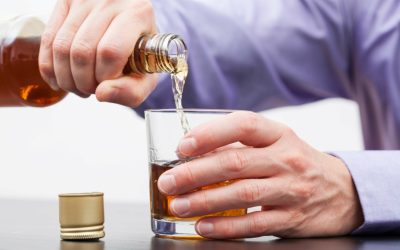Triple III Explainer
We gain humility as a result of taking a good look at the damage we did to others (and ourselves) and accepting responsibility for it. After acknowledging to ourselves what we’ve done, we take responsibility for making it right. There is nothing quite like experiencing increased humility while making amends in your Ninth Step and recognizing the self-empowerment and self-love that comes with it. When discussing our amends list with our sponsors, if we are open-minded, we can start to think about these kinds of situations in ways we haven’t thought about them before. In fact we usually discover that what we first thought was the obvious method of making amends, might not be right after all. You’ve probably already discovered that by staying clean and sober and by working the Twelve Steps of AA that things are getting better.
- The amends I made to her was admitting my wrongs and shortcomings due to my addiction.
- We’ve written about how common guilt is in grief (you wouldn’t believe how many people get the “coulda woulda shouldas”).
- It doesn’t matter how you choose to donate to Living Amends; your donation will go to support those less fortunate than yourself.
Looking for more support?

Though this cannot undo or directly compensate for the initial mistake, it can serve as living amends that comes through a different way of being in the world. In that act, your actions in their memory make you and the world a better place. After years of being bossy and overbearing, my basic apologies meant little.
- By compensating the people we have hurt, us in long term recovery can begin to mend the ruptured relationships and rebuild trust while staying sober.
- Your ‘living amends’ is living in a way that that acknowledges the previous mistake by consistently living in a way that doesn’t repeat it or compensates for it.
- We don’t pay the full amount for your stay in the sober living facility.
- You can rest assured that no one will misuse your donation.
- Assess whether the person you’re approaching is prepared to engage in the conversation about amends, as it can significantly impact the outcome.
For Treatment Providers
“Freedom” seems to be the word that most clearly describes the essence of Step Nine. It seems to sum up the relief from guilt and shame, the lessening of our obsession with “self”, and the increased ability to appreciate what’s really going on all around us. We may even start to think of our past as a gold mine of experiences to share with other people we’re trying to help in recovery, instead of as a period of darkness that alcoholism we regret. We stop thinking about our lives in terms of what we don’t have and begin to appreciate the gifts that we receive every single day. And finally, we are very aware that in order to keep this feeling of freedom, we’ll need to keep on applying what we’ve learned while working the steps. When we do this this we gain a new perspective and the promises of the Ninth Step come true in our lives.
Examples of Making Amends: Living Amends
Essentially, it means making a radical shift in the way you live and sticking to that. When you make living amends, you make genuine changes to support your emotional and physical sobriety. In doing so, you promise to live a sober and honest life and never return to your old ways of lying and hurting the people you love the most. Express personal responsibility for your actions and living amends outline the steps you have taken to repair the damage.

It’s important to note that making amends is for the person we hurt. Yes, we partake in the process to “clean up our side of the street,” but we do not make amends to clear our conscience or undo our feelings of guilt. If someone does not want to hear from us, we respect that and do our best to move forward with our recoveries. We can also make amends by living very purposefully within the bounds of our principles. Step Nine states that we make amends “except when to do so would injure them or others.” We don’t want our actions to cause further damage, harm or stress.
Additionally, the individual must pay the cost back as they continue through the sober living facility. Doing so ensures that the person you help will also benefit other people. As Kessler describes, this woman may decide that her way of making amends is to always answer the phone when someone she loves calls after a fight.



